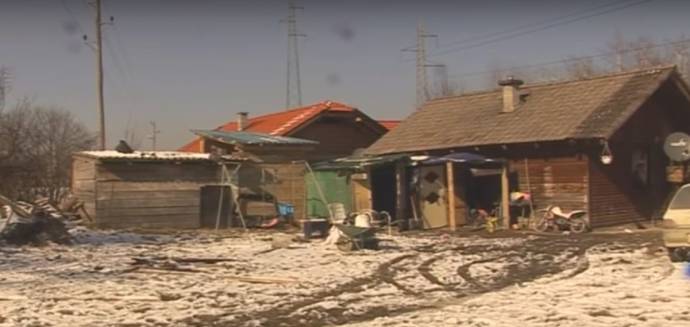Getting briefed about the tensions in the area and the issues of the Roma population, whose integration has failed to follow the successful example in the north-east of the country, Pahor urged all participants of Wednesday's event held in Ljubljana to continue with dialogue and work together closer.
He argued that measures based on positive discrimination will be necessary, but the debate also heard calls that the Roma community will need to understand that rights and duties go hand in hand.
The biggest illegal Roma village in Slovenia, Žabjak-Brezje in the Novo Mesto area, which now numbers around 700 people but is lacking basic infrastructure, was the starting point for the discussion.
Novo Mesto Mayor Gregor Macedoni noted the need for better coordination, pointing out that the zoning segment of the planned makeover of Žabjak-Brezje had been backed by the municipal council to later get a red light from the Agriculture Ministry.
Chair of the Bučna Vas municipal council Andrej Redek and the head of a regional civil initiative for Roma issues Silvo Mesojedec pointed out that a similar makeover plan already existed in 1984, but that the settlement only expanded after that.
It is struggling with high unemployment, less than 1% of the inhabitants have finished primary school, Mesojedec said, while Redek also spoke of safety concerns.
Arguments that measures tackling social, education and other issue would also have to be addressed along with the legalisation of Roma settlements were echoed by Nataša Logar, who grew up in a settlement too.
She said the vicious cycle can only end if the Roma get a chance to work and if the children receive education, which will require the cooperation of all institutions.
Kočevje Mayor Vladimir Prebilič was among those in favour of making child allowances dependent on the children's presence in school.
He also called for a more flexible approach to the hiring of Roma in public work projects and urged debt amnesty, saying the Roma are not ready to buy the land they are using because they fear it will be confiscated.
Barbara Radovan, the head of an interdepartmental task force dedicated to addressing the issues of the Roma, presented some of the data the task force collected and will be presented in more detail in its final report.
She said a total of 6,600 Roma lived in 83 settlements in 25 municipalities around the country; a settlement was defined as consisting of at least three inhabited houses.
The data collected through polling suggests that 81% of the settlements have access to public water supply. Some have their own wells and a small share use rain water for drinking. About 1% of the settlements do not have access to drinking water.
More than half of the residents live in houses connected to the sewage system or have their own septic tanks. Nearly 50% do not have a suitable waste water management system in place. About 60% of the houses are legally connected to the electrical grid.
The task force, which is in the process of drawing up its final report, recommends the introduction of a single register that would regularly record progress or lack thereof at the settlements.
The task force also recommends setting up special offices to help the Roma as well as municipalities with the issues at hand.
"There are many problems and they have been dragging on too long," Human Rights Ombudsman Vlasta Nussdorfer said.
She hopes the new government will immediately address the situation, and Pahor also announced he will discuss it with the new prime minister after the election.







